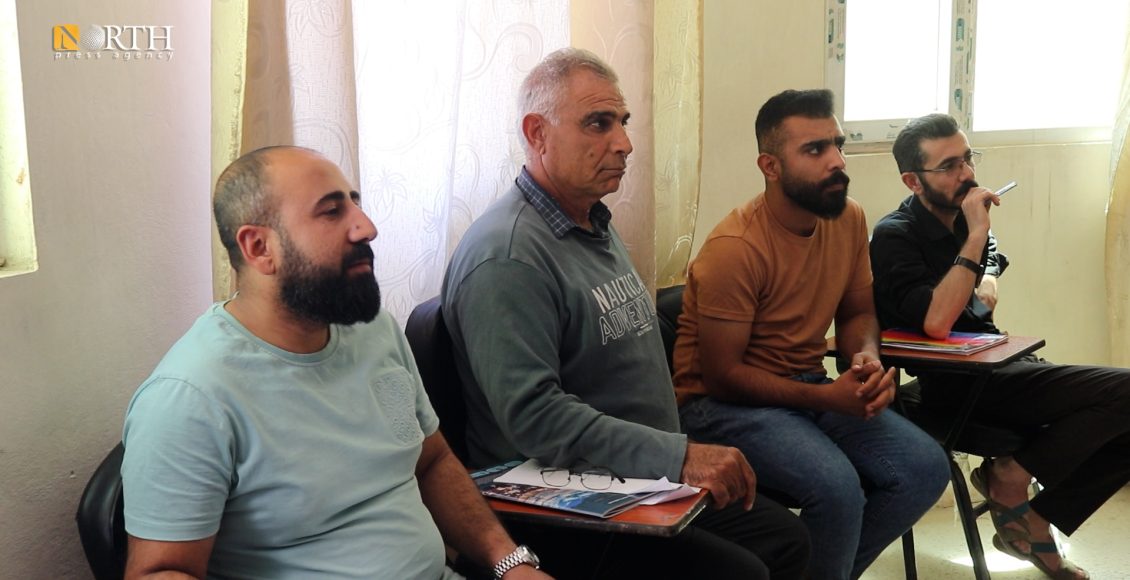62-year-old teacher returns to university in Syria’s Kobani
By Fattah Issa
KOBANI, Syria (North Press) – In a classroom at Kobani University in Syria’s northern city of Kobani, 62-year-old Mohammad Jassem sits among classmates decades younger than him. While the scene may seem unusual, for Jassem, returning to school is not a fleeting adventure—it is a long-delayed journey of passion and purpose that is finally bearing fruit.
Belated quest for identity
Originally from the Kaniya Kurdan neighborhood in Kobani city, northern Syria, Jassem currently works as a schoolteacher. For him, education is not merely about obtaining certificates, but a path to self-discovery—one that begins with reclaiming his mother tongue, Kurdish, which was banned from formal education for decades under the former regime.
Despite his professional and family obligations, Jassem enrolled in the Kurdish Language and Literature Department launched at Kobani University for the 2024–2025 academic year. The program is designed specifically for educators and civil servants seeking to advance their academic qualifications.
“After the liberation of Kobani, I felt there was nothing stopping me anymore from learning my mother tongue—a part of my identity that had long been stolen from me,” says Jassem.
Now in his sixties, he is determined to continue his studies for as long as possible. “Education is the key to understanding the world, gaining knowledge, and experiencing life in all its forms,” he explains.
Lingering obstacles and hard-won progress
Jassem recalls the difficulties of past decades, when he was forced to teach children in Arabic—a language many did not understand.
“We used to teach in Arabic, but most of the children could not comprehend it. They memorized lessons without truly understanding them. That is why dropout rates were so high. A child cannot persist in something they do not grasp,” he says regretfully.
Beyond linguistic challenges, Jassem—like many Kurds in Kobani—faced systemic discrimination in employment. Though he held a high school diploma under the previous regime, he was sent to remote villages for work while appointments in the city were reserved for outsiders.
“They brought in teachers from cities like Hama and Homs, while locals were sent far into the countryside—even though we were more qualified to teach in our own communities,” he recalls.
In middle age, Jassem attended a short course to learn Kurdish, but it was not enough to satisfy his growing passion. He took matters into his own hands—reading, researching, and writing—until he became capable of teaching children in their native language.
His university enrollment today marks the culmination of a long and personal struggle for knowledge.
“We face many challenges—limited resources, a lack of references, and unfamiliar terminology—but determination makes all the difference,” he affirms.
What brings him the greatest joy today, he says, is seeing children learn in Kurdish.
“When a child learns in their mother tongue, they understand, they engage, and they grow. This is what we dreamed of for so long. What is happening now feels like being born again.”

